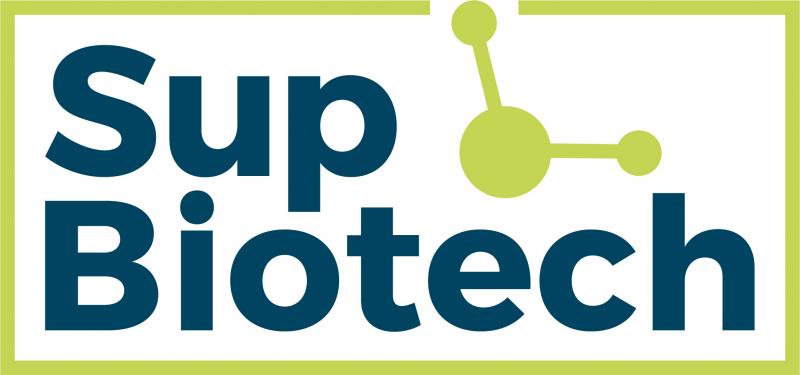Rebounds for educational success. Mobilization and partnerships around athletes on the path to high-level access
| ABG-131504 | Thesis topic | |
| 2025-04-28 | Public funding alone (i.e. government, region, European, international organization research grant) |
- Sociology, anthropology, learning sciences
- Géography
- History, history of art and civilizations
Topic description
The structures supporting High-Level Sports (HLS) in France engage a critical mass of 10,000 young individuals (including children) at the national level. These structures are embedded in an ambitious three dimensional project, which aims to balance academic education, intensive training, and personal fulfillment. These programs are unique in that they involve coaches and parents collaboratively in the educational process, while promoting ambitious, comprehensive, and long-term educational commitments within the sporting context.
However, little is currently known about these "sportive education" initiatives. Existing research remains confined to analyses that isolate the sporting and family spheres. They fail to examine the interactions between these domains, both in their forms and their effects. Moreover, they often focus on a dichotomy between familial legacies and individual adaptability. Conclusions either emphasize the influence of family dispositions on athletic vocations or highlight the ongoing process of redefining individual commitments. Consequently, there is a lack of understanding regarding the forms of coordination (e.g., co-management, reinforcement, delegation) and the outcomes of these educational partnerships, despite the frequent attribution of young athletes' psychological autonomy to their participation in such structures.
The hypothesis underlying this study is that several well-documented dimensions of family dynamics manifest in the construction of the relationship with intensive training as an educational lever. To our knowledge, this hypothesis has not been tested before. The study aims to identify the most efficient, effective, or resilient forms of partnership, as well as the conditions under which these collaborations are perceived as satisfactory by the various stakeholders.
This research compares two individual sports disciplines—gymnastics and judo—that differ in terms of athlete age and gender, organizational structures, and territorial contexts. These differences will allow for the examination of a range of variables. The two sports federations involved have long been associated with the project, actively support it, and will participate in its implementation (see letters from federation presidents).
The partnerships under study are expected to reveal original educational solidarities that are highly informative and potentially applicable to other contexts. In the short term, the goal is to assist stakeholders in these pathways by developing preventive measures for athletes and their families, as well as training modules for sports professionals.
Funding category
Funding further details
Presentation of host institution and host laboratory
Rouen
Genève
PhD title
Country where you obtained your PhD
Institution awarding doctoral degree
Double degree
YesCountry where the PhD was obtained in cotutelle
Establishment awarding the doctorate in cotutelle
Candidate's profile
• Titulaires d'un diplôme de Master en sciences sociales ou STAPS • Aguerri au raisonnement sociologique et aux méthodes quantitatives : travaux à l’appui • Attester de compétences rédactionnelles : mémoires, travaux divers • Maîtriser l’anglais à l’écrit et à l’oral • Sens du contact et capacités à travailler en équipe
Vous avez déjà un compte ?
Nouvel utilisateur ?
Get ABG’s monthly newsletters including news, job offers, grants & fellowships and a selection of relevant events…
Discover our members
 TotalEnergies
TotalEnergies  ADEME
ADEME  MabDesign
MabDesign  Ifremer
Ifremer  CASDEN
CASDEN  MabDesign
MabDesign  ONERA - The French Aerospace Lab
ONERA - The French Aerospace Lab  PhDOOC
PhDOOC  CESI
CESI  SUEZ
SUEZ  Aérocentre, Pôle d'excellence régional
Aérocentre, Pôle d'excellence régional  Tecknowmetrix
Tecknowmetrix  Laboratoire National de Métrologie et d'Essais - LNE
Laboratoire National de Métrologie et d'Essais - LNE  ANRT
ANRT  Nokia Bell Labs France
Nokia Bell Labs France  Généthon
Généthon  Groupe AFNOR - Association française de normalisation
Groupe AFNOR - Association française de normalisation  Institut Sup'biotech de Paris
Institut Sup'biotech de Paris  ASNR - Autorité de sûreté nucléaire et de radioprotection - Siège
ASNR - Autorité de sûreté nucléaire et de radioprotection - Siège
-
JobRef. 131050, Ile-de-France , France
 SupBiotech
SupBiotechDirecteur des Laboratoires d'Enseignements (H/F)
Scientific expertises :Biotechnology - Biology
Experience level :Confirmed
-
Thesis topicRef. 129914AUBIERE , Auvergne-Rhône-Alpes , France
 Université Clermont Auvergne
Université Clermont AuvergneSynthèse enzymatique d'hydroxycétones valorisables // Enzymatic synthesis of valuable hydroxyketones
Scientific expertises :Chemistry - Biochemistry - Biotechnology






